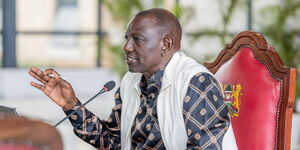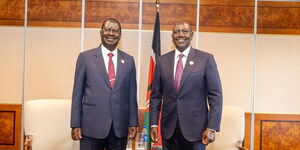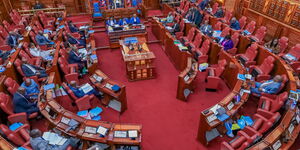Activists from Russia and South Africa flew to Kenya to join forces with their counterparts opposing the construction of a nuclear power plant in Kilifi.
In a statement to the press on Thursday, the eco-justice organisations are on a to share insights and learnings, from their experiences of living with nuclear energy, in their respective countries.
From South Africa, members of Southern African Faith Communities Environment Institute (SAFCEI) and Earthlife Africa Johannesburg made the trip while Ecodefense and Right Livelihood Awards originated from Russia.
Vladimir Slivyak, the founder of Ecodefense, noted that the push of a new nuclear site in Kenya was likely a result of pressure from other countries where citizens have opposed it.
“It is evident that the nuclear industry, facing dwindling support and mounting opposition in their own countries, is now seeking new markets. The people of Africa must fight to avoid becoming the next victim of this dangerous and outdated technology. There are several significant reasons to move away from nuclear energy," he explained.
"From the potential harms that could result from the unresolved issue of radioactive waste disposal to the lack of meaningful public participation and a lack of transparency, and also that fact that globally, there is a clear shift away from this hazardous technology. Africa must not be fooled by the promises of the nuclear industry. This continent deserves an energy future that is safe, sustainable, and just.”
The foreign activists are expected to meet with the Centre for Justice, Governance and Environmental Action (CJGEA) and support their efforts in opposing the nuclear.
SAFCEI Executive Director, Francesca de Gasparis, noted that nuclear power is not a viable solution since the consequences outweigh its benefits.
"Our continent’s future depends on the choices we make today. This is why we unequivocally reject nuclear energy as it is not a viable sustainable option because of the threat it poses to people and the environment. And the fact that nuclear deals are often characterised by a lack of transparency and flawed public participation processes, only makes matters worse. Furthermore, the world is increasingly recognising the dangers and pitfalls of nuclear energy," de Gasparis stated.
"The Global North, where nuclear technology has been utilized extensively, has begun pivoting away from this perilous energy source. Clearly, they have learned from decades of experience about the inherent risks, high costs, and long-term environmental damages associated with nuclear power.”
For months, Kilifi residents and their leaders have held protests against the construction of nuclear power fearing destruction of the marine system and their own evictions.
In January this year, Nuclear Power and Energy Agency (NuPEA) Coast region manager Kenneth Anakoli confirmed that the project needed 35 acres.
He further noted that no one would be allowed to live within a 1.6-kilometer radius of the plant. The project was proposed to be constructed in a decade's time.












